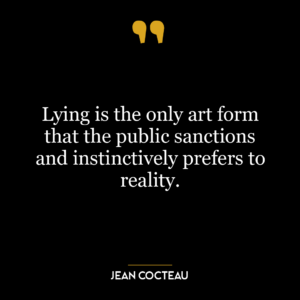This quote is a profound reflection on life and the human condition. It suggests that living solely out of necessity, or merely surviving rather than truly living, is not an ideal state of being. However, it also emphasizes that we are not bound by this state of necessity. We have the ability to transcend mere survival and pursue a life of purpose, meaning, and fulfillment.
The first part of the quote, “It is bad to live for necessity,” implies that a life driven solely by basic needs and survival is not a fulfilling or satisfying one. This could refer to only fulfilling our basic physiological needs like food, water, and shelter, or it could also refer to the societal pressures and expectations that we feel obliged to fulfill, such as getting a high-paying job or owning a house.
The second part of the quote, “but there is no necessity to live in necessity,” points out that we are not inherently bound to this state of mere survival. We have the capacity to rise above it and pursue a life that is rich in experiences, relationships, personal growth, and purpose.
In today’s world, this quote can be seen as a call to live consciously and intentionally. It encourages us to evaluate our lives and consider whether we are living merely out of necessity or if we are actively seeking out experiences and opportunities that enrich our lives and bring us joy, fulfillment, and personal growth.
In terms of personal development, this quote can inspire us to strive for self-improvement and personal growth beyond our basic needs and societal expectations. It encourages us to seek personal fulfillment and happiness, to pursue our passions and interests, and to strive for a life that is meaningful and rewarding to us as individuals. It reminds us that we have the power to shape our lives and that we are not merely passive recipients of our circumstances.
















